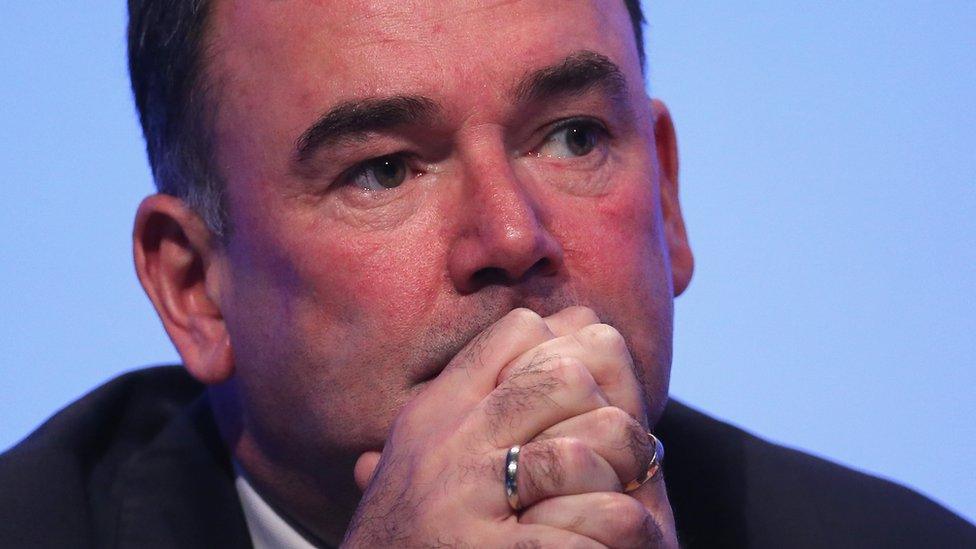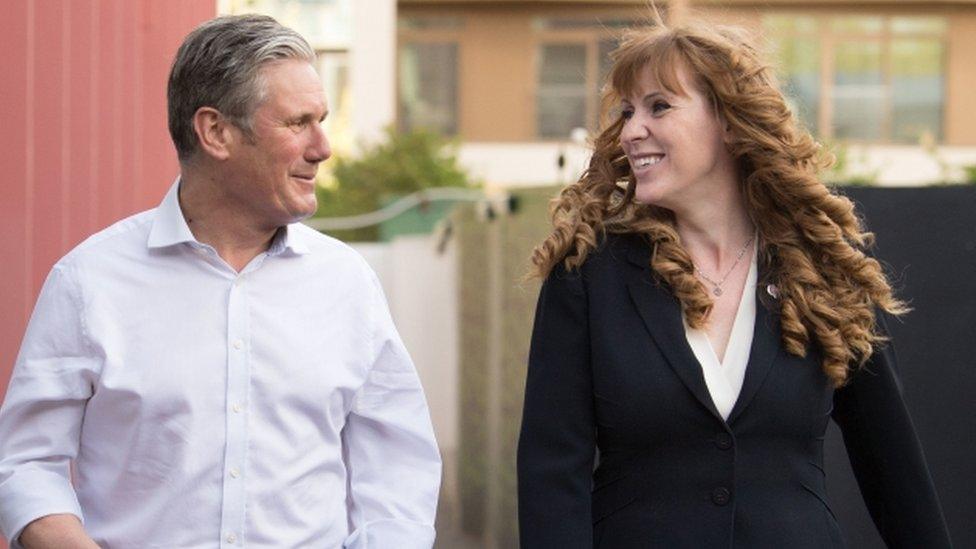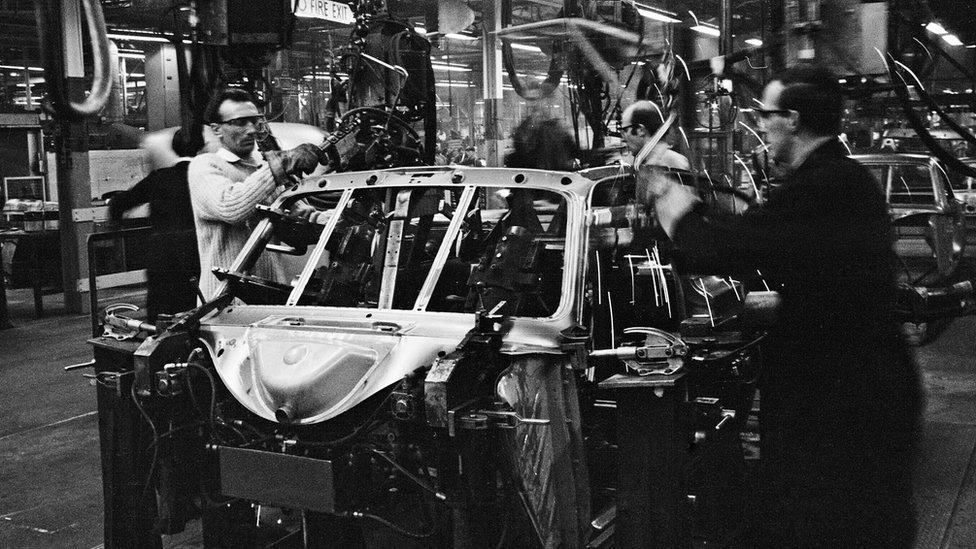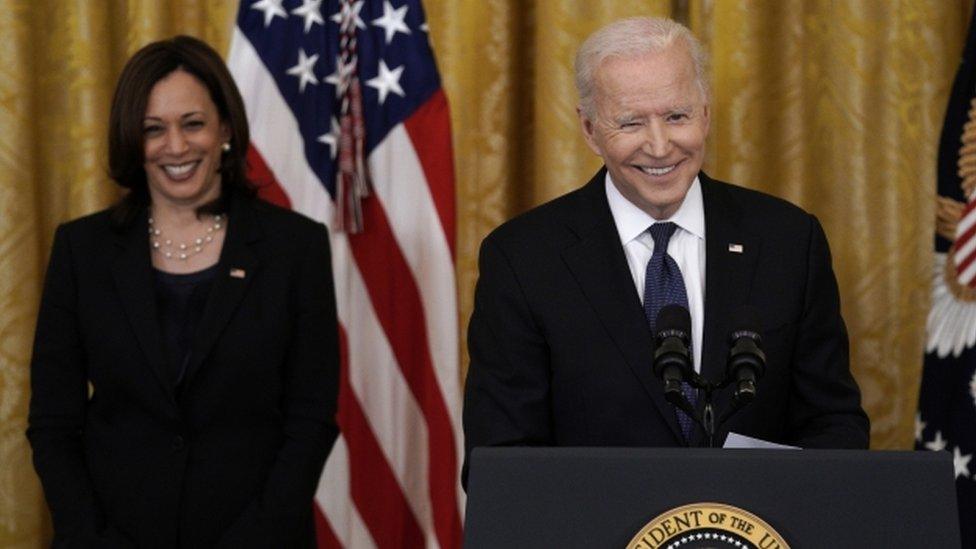Jon Cruddas: Labour guru's plan to win back the working class
- Published

Labour is desperate to reconnect with the working-class communities that gave birth to it - but those communities have changed a lot in recent decades and some in the party fear they could be lost forever.
In a new book, The Dignity of Labour, veteran Labour thinker Jon Cruddas argues that the party needs to get back to basics.
The Dagenham MP says the answer to Labour's woes - the steady leaking of support to the Conservatives in its former heartlands and the feeling that it does not know what it stands for any more - is staring it in the face.
"The clue is in the name," as he puts it.
Work was central to Labour's mission when it was founded more than 120 years ago and it is, says Cruddas, more relevant than ever in the age of the "gig economy".
"All the evidence suggests people want decent, purposeful work to carry out.
"It's central to their sense of identity, their sense of community. It's what they want deep inside themselves. It's dangerous for politicians to get on the wrong side of those basic emotions."
The Labour leadership appears to be thinking along similar lines. Sir Keir Starmer promised to regain the "trust of working people" in the aftermath of a thumping defeat in the Hartlepool by-election this month.

Labour's leadership says it wants to regain the trust of working people
Among a portfolio of new roles handed to her in a chaotic reshuffle following that defeat, deputy leader Angela Rayner is attempting to come up with bold new policies to create jobs in former Labour heartlands.
'Middle-class party'
Cruddas says he hopes to contribute to this work, but he remains troubled by how far the party has drifted from its traditional working-class roots - and fallen into the arms of "Remainia", a land inhabited by young, educated, networked professionals who campaigned for Britain to stay in the EU, and who now make up much of the party's membership.
He is also alarmed by influential voices on the left, external who promote utopian visions of a Fourth Industrial Revolution, where robots do all the work, and the masses are pacified by a "universal basic income".
"There is a long-term trend to us becoming a middle-class membership and a middle-class party and, ideologically, we are moving towards an agenda that rejects work itself," he says.
"The reason I wrote the book is just to have a debate about this, because I think we are changing the party by stealth, without discussing it."
Despite the leadership's new focus on jobs - and Sir Keir praising his book as "an essential read for anyone interested in how our movement can rebuild" on its dust jacket - Cruddas says: "We are so far down the road that it might become irretrievable now."
There was a time when Cruddas might have been making these arguments from Labour's front bench, but serious illness has made him abandon any career ambitions.
"I had a major brain trauma and had to confront the possibility of imminent death and that makes you think again.
"I lost my personal interest in the Top Trumps of Westminster. It had quite a major effect and it was one of the best things that ever happened to me."
'Soulless managerialism'
The son of a sailor from Portsmouth, Cruddas sees parallels between his own life and that of Labour leader Sir Keir Starmer, who is roughly the same age and from similarly humble origins.
But unlike Sir Keir, who scaled the heights of the legal profession before entering politics, it was politics from day one for Cruddas.
A PhD in political philosophy led to a job advising Labour on policy, and then a role in Tony Blair's Downing Street as the new PM's link man with the unions. He had a creditable tilt at the deputy leadership of the party in 2007, losing out to Alan Johnson and winner Harriet Harman.

Ford's Dagenham plant was at the heart of the community for decades
But it is in Dagenham, east London, where he has been the MP since 2001, that he has had the biggest impact. He helped to defeat the BNP, which at one time was polling in the high teens and was the official opposition on the local council, and rebuild Labour's support in a traditional blue-collar area battered by globalisation.
In his book, he examines the destruction of Dagenham's working-class culture, once rooted in trade unionism and the Ford car plant which employed 40,000 local people at its height.
New Labour put all its energies into promoting high-skilled jobs and university education, and largely left the low-skilled to look after themselves, he argues, but this has not led to the revolution in productivity envisaged by Tony Blair.
Instead, there has been a boom in insecure, low-paid service-sector jobs.
This should be fertile ground for Labour but, Cruddas says, the party has lost its ability to speak to working people in a way that means anything to them, which began when Tony Blair swapped his early idealism for "soulless managerialism".
'Rancid culture'
"In the end, New Labour assumed the electorate would only respond to a sour, illiberal politics about consuming more, rather than deeper ideas of fraternity, of collective experience and what it is we aspire to be as a nation," he writes.
Things could be very different now.
The coronavirus pandemic has, like his own brush with mortality, made people "want to live different lives", Cruddas tells me, and to have a new appreciation for the caring professions and the low-paid key workers who keep the country going.
"That means it's incumbent on us to come up with something. We have to inspire. We have to seize the moment," he says.
But can the Labour Party rise to the challenge? After four election defeats in 11 years, and endless infighting over the direction of the party, Cruddas has his doubts.
"At every party meeting now, there are calls for unity by people who, a few months ago, were trying to pull down the last leader of the party.
"So, therefore, his old supporters are taking shots at those people. There is this tit-for-tat, drive-by mentality within the party at the moment, that we have to get out from under, because it is destroying the character of the party."
He adds: "We have to get out of this rancid culture - and that takes real leadership."
'Outcast'
Like many on the British left, he looks to US President Joe Biden, who has so far managed to unite the battling factions in his party behind an ambitious Covid recovery plan based around the promise of millions of well-paid, unionised jobs.
Cruddas wants to see something similar in the UK.

Many on the British left are seeking inspiration from the new team in the White House
"If I was the leader of the Labour Party," he says with a wry smile, "I would guarantee the right of everyone to have a decent, well-rewarded job." He would also guarantee decent housing and healthcare - and wrap it all up in a "bold" narrative about rebuilding the nation.
He says he is "quite optimistic" about Starmer's ability to turn Labour around, providing he can stop "zig-zagging" between factions on the left and right, and deliver an inspiring vision in "primary colours".
But he warns that the "clock is ticking". While Labour is squabbling British politics is being remade around it, as old party and class loyalties crumble, and Boris Johnson marches on to Labour's old turf, brandishing promises of jobs and renewal.
"I don't underestimate what he (Johnson) is doing. I talk to quite a lot of senior Tories, who are involved in the Johnson project, and it scares me, in terms of the collateral effect on Labour, what's being reorganised all around us and the effect it could have in creating an enduring cross-class coalition of voters."
Labour has always been a slightly uneasy coalition between the industrial working classes and middle-class intellectuals. Cruddas wants to see that coalition rebuilt, even though he says it would probably be easier, and more authentic, for the party to "double down" on its Remainia voter base and write off the "nativist" working classes in places like Dagenham.
But he also believes the party needs to make peace with the New Labour years, through some kind "truth and reconciliation" process.
He would even offer meaningful work to someone the party left behind a long time ago now.
"I would like to see Tony Blair involved. He's seen as an outcast by many in the party. I think he has a major contribution to make if we have the wherewithal to invite him into those conversations, but that's a big if."